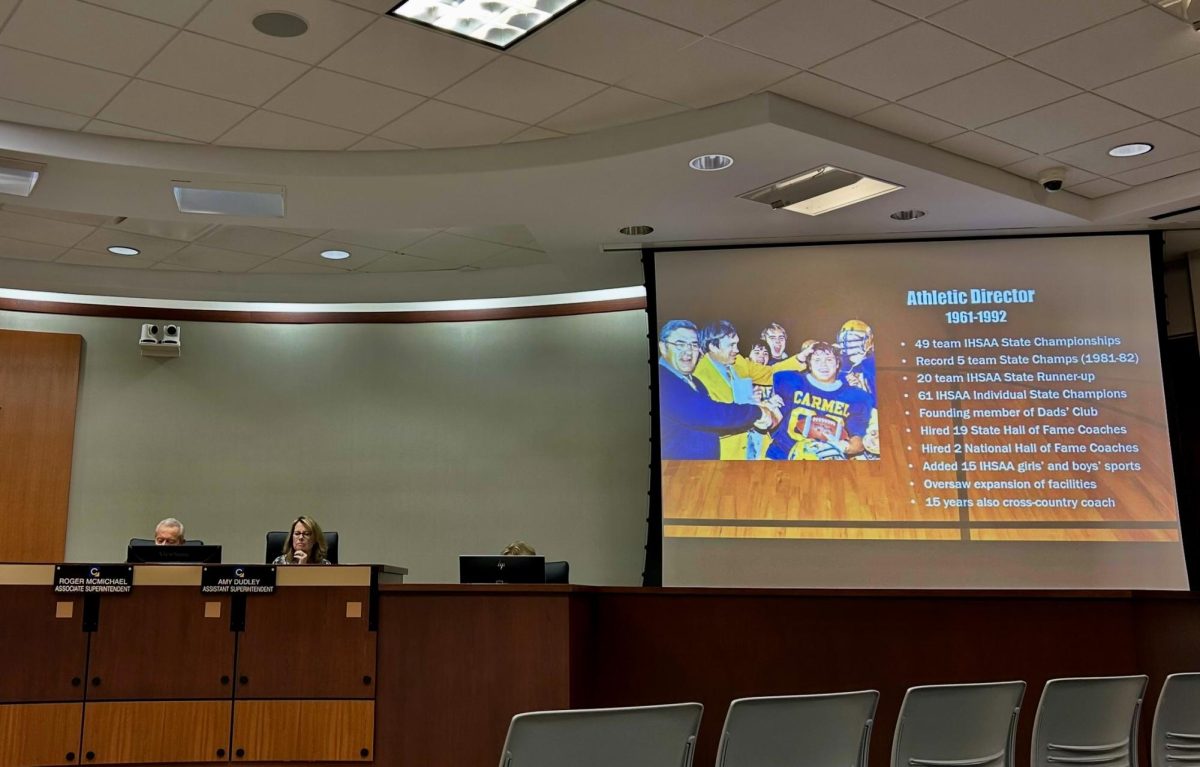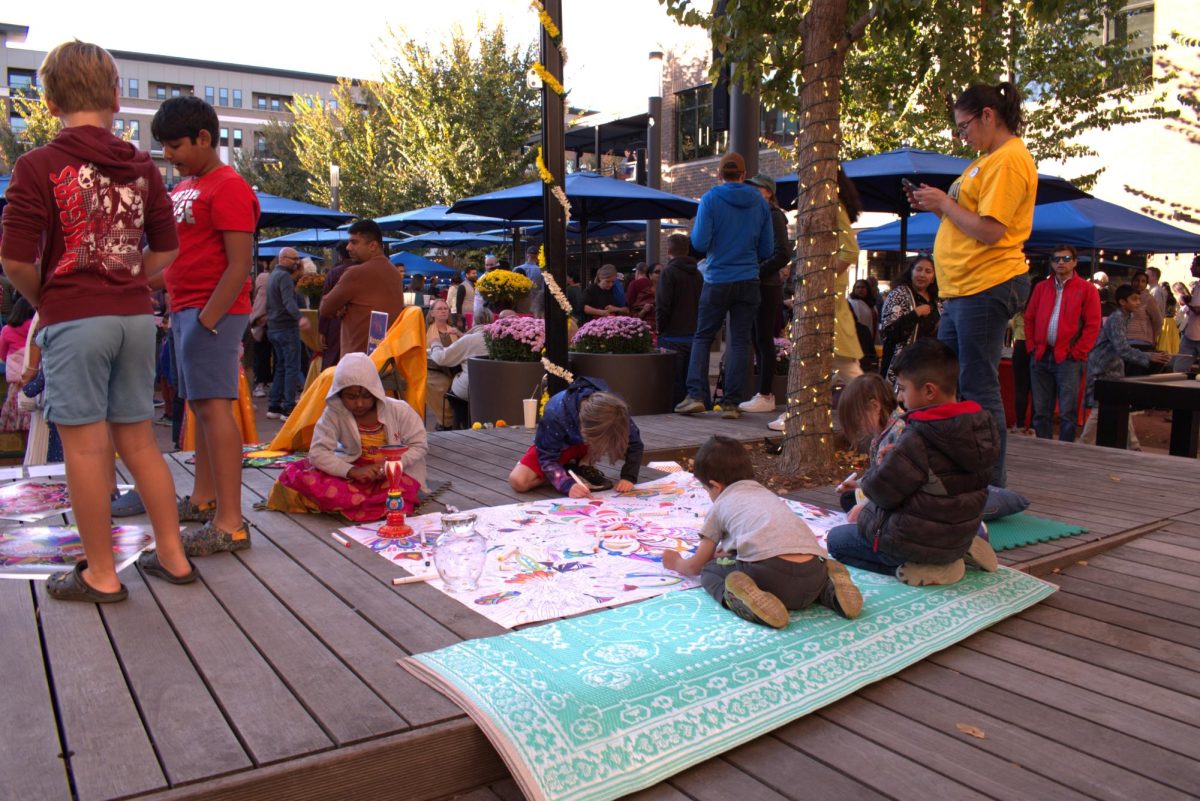By Yameen Hameed
<[email protected]>
For every decade, we have some defining words. According to inthe90s.com, some slang words of the nineties are “boo ya,” “whatever” and “duh.” According to slang-user and sophomore Kern Vohra, slang of the previous decade includes not only words such as “tight,” “legit” and “beast,” but also some words derived from the Internet and texting, such as “pwn” and “OMG.” However, technology as a whole has had a larger impact on language than simply a few words
“It’s very important that language continues to change over time to reflect the change in the culture of the people using it,” Vohra said. “For example, abbreviations have become more prevalent due to new technology.” Vohra also says the Internet can make new terms spread faster
English teacher Rebecca Malenkos, however, said she does not share Vohra’s positive views on slang. “It is the nuances in language that enable us to verbalize the range of human emotions and feelings,” she said. “It is they that let us discuss what makes us human.”
Malenkos said she believes that technology is slowly compromising language.
“Socially, (technology brings) little change because we still sit down and talk to each other, but we are losing our vocabulary because of a fast-paced technological world and we no longer recognize our language as much more than a tool to get us through the day,” Malenkos said.
Sophomore Gabrielle “Brii” Robbins does not use slang and said she agrees with Malenkos. “I normally talk as if I really have a brain instead of getting things out as quickly as I can,” she said. However, Robbins believes this change is inevitable and is not particularly significant in this decade. “I feel like this destruction of language has always been there, but now it’s getting worse with the Internet and everything,” Robbins said.
imilarly, Malenkos feels it has been a gradual change over the past 30 years. “But the technology of the last decade has exacerbated the issue,” she said.
Vohra said, “While many stiff and formal people dislike how the Internet is impacting language, I think that our generation is warming up to it.” He said he feels the Internet is not necessarily to blame for problems with language. “I’m sure that the generation above the (current adults) didn’t like their slang either, they just weren’t able to find a suitable scapegoat for it,” he said.
Robbins said, “There’s not much to encourage people to speak well.” Malenkos shares this view and said that classical books are replaced in schools by more modern ones due to the fact that they are easier to read. “Unlike in 1984, we don’t have a set system to help us eliminate language,” she said. “But it is still happening.”




























![Keep the New Gloves: Fighter Safety Is Non-Negotiable [opinion]](https://hilite.org/wp-content/uploads/2024/12/ufcglovescolumncover-1200x471.png)






!["Wicked" poster controversy sparks a debate about the importance of accuracy versus artistic freedom [opinion]](https://hilite.org/wp-content/uploads/2024/11/riva-perspective-cover-1200x471.jpg)









































![Review: “We Live in Time” leaves you wanting more [MUSE]](https://hilite.org/wp-content/uploads/2024/12/IMG_6358.jpg)
![Review: The premise of "Culinary Class Wars" is refreshingly unique and deserving of more attention [MUSE]](https://hilite.org/wp-content/uploads/2024/12/MUSE-class-wars-cover-2.png)
![Introducing: "The Muses Who Stole Christmas," a collection of reviews for you to follow through winter [MUSE]](https://hilite.org/wp-content/uploads/2024/12/winter-muse-4.gif)
![Review: "Meet Me Next Christmas" is a cheesy and predictable watch, but it was worth every minute [MUSE]](https://hilite.org/wp-content/uploads/2024/11/AAAAQVfRG2gwEuLhXTGm3856HuX2MTNs31Ok7fGgIVCoZbyeugVs1F4DZs-DgP0XadTDrnXHlbQo4DerjRXand9H1JKPM06cENmLl2RsINud2DMqIHzpXFS2n4zOkL3dr5m5i0nIVb3Cu3ataT_W2zGeDAJNd_E-1200x884.jpg)
![Review: "Gilmore Girls", the perfect fall show [MUSE]](https://hilite.org/wp-content/uploads/2024/11/gilmore-girls.png)
![Review in Print: Maripaz Villar brings a delightfully unique style to the world of WEBTOON [MUSE]](https://hilite.org/wp-content/uploads/2023/12/maripazcover-1200x960.jpg)
![Review: “The Sword of Kaigen” is a masterpiece [MUSE]](https://hilite.org/wp-content/uploads/2023/11/Screenshot-2023-11-26-201051.png)
![Review: Gateron Oil Kings, great linear switches, okay price [MUSE]](https://hilite.org/wp-content/uploads/2023/11/Screenshot-2023-11-26-200553.png)
![Review: “A Haunting in Venice” is a significant improvement from other Agatha Christie adaptations [MUSE]](https://hilite.org/wp-content/uploads/2023/11/e7ee2938a6d422669771bce6d8088521.jpg)
![Review: A Thanksgiving story from elementary school, still just as interesting [MUSE]](https://hilite.org/wp-content/uploads/2023/11/Screenshot-2023-11-26-195514-987x1200.png)
![Review: "When I Fly Towards You", cute, uplifting youth drama [MUSE]](https://hilite.org/wp-content/uploads/2023/09/When-I-Fly-Towards-You-Chinese-drama.png)
![Postcards from Muse: Hawaii Travel Diary [MUSE]](https://hilite.org/wp-content/uploads/2023/09/My-project-1-1200x1200.jpg)
![Review: "Ladybug & Cat Noir: The Movie," departure from original show [MUSE]](https://hilite.org/wp-content/uploads/2023/09/Ladybug__Cat_Noir_-_The_Movie_poster.jpg)
![Review in Print: "Hidden Love" is the cute, uplifting drama everyone needs [MUSE]](https://hilite.org/wp-content/uploads/2023/09/hiddenlovecover-e1693597208225-1030x1200.png)
![Review in Print: "Heartstopper" is the heartwarming queer romance we all need [MUSE]](https://hilite.org/wp-content/uploads/2023/08/museheartstoppercover-1200x654.png)



